Insoo Lee is a director deeply in love with the language of playwrights. Grounded in thorough script analysis, she immerses herself in the worlds writers envision and brings them to life on stage. In the process, she keeps the door open for the creativity of actors and staff to thrive — always mindful that theater is a collaborative art.
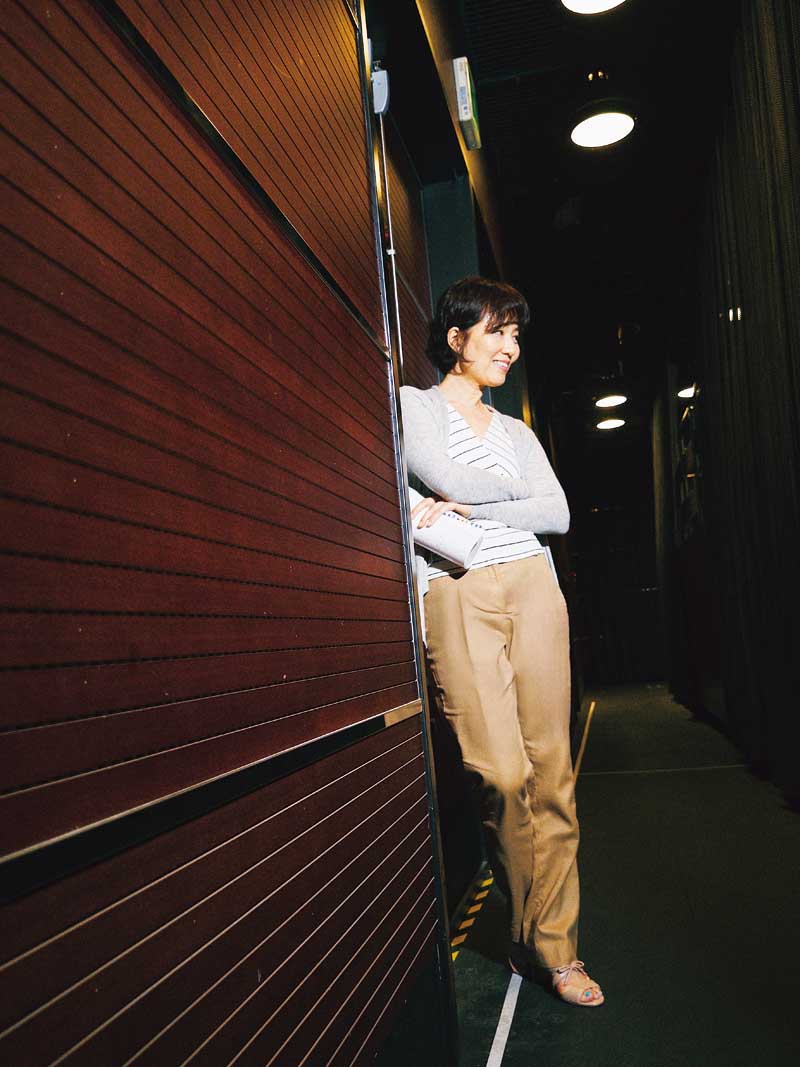
Insoo Lee is a rising Korean theater director recognized for her insightful script analyses and refined, nuanced direction. Her guiding principle is that “a truly great production begins with great writing.”
“When asked if she’s happy, Insoo Lee, who first directed Martin McDonagh’s The Pillowman in 2015 and has kept it on stage for ten uninterrupted years, answers without the slightest hesitation: “I’m so happy — to the point that I sometimes wonder if I’m allowed to feel this happy.”
This comes as no surprise. Nearly all her productions have received glowing reviews. More importantly, she has truly enjoyed crafting each one of them. Her joy stems from the tight-knit group that drives her work: four playwrights, two producers, and herself as director. Under the name Geulmoo, they have been working together for many years now, their collective efforts continuing to evolve while allowing members to pursue individual projects.
After a decade of working at a demanding pace, burnout would be expected. But Lee insists that theater brings her nothing but joy. In Korea, a theater career offers neither great wealth nor the international recognition that some K-drama directors gain through global streaming platforms. Still, when asked why it makes her so happy, she replies, “Because of the joy of creating a new world. There are countless ways to tell a story in theater. The same story can unfold like the quiet details of everyday life, or be distilled into potent symbols.”
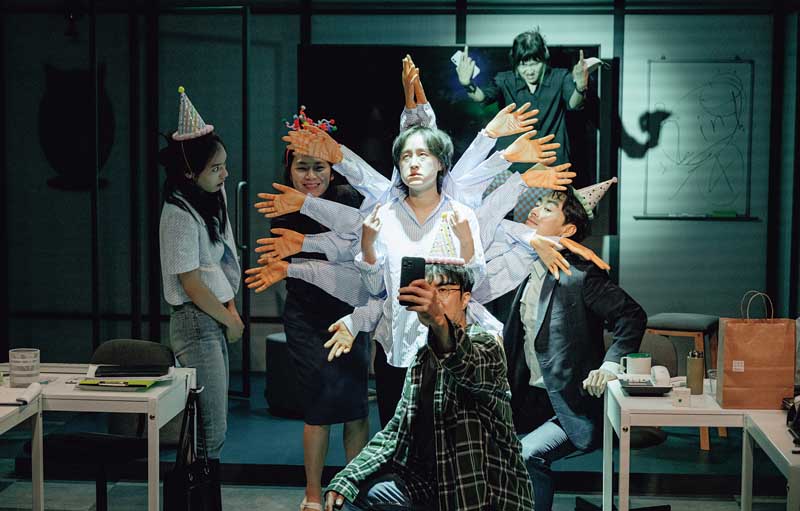
A scene from A Joke about Burnout, performed at Doosan Art Center’s Space 111 in the summer of 2025. Set in a start-up, this black comedy sheds light on workplace issues. It is the second production by Geulmoo, a group that includes director Insoo Lee and playwrights Kim Yun-yeong, Jin Ju, Bo Young Choi, and Jung Eun Hwang. Courtesy of Geulmoo
A DIFFERENT REALITY
What is the “new world” that so captivates Lee? Without giving too much away, consider the Thousand-Armed Avalokiteśvara in her recent work A Joke about Burnout, based on the book by Kim Yun-yeong. Set in a startup running an online platform, this black comedy lays bare the unforgiving realities of the modern workplace. One character, as if burdened with the work of dozens, sometimes hundreds of staff, ends up with a thousand arms. Absurd as it may seem, the employee — now transformed into the Thousand-Armed Avalokiteśvara — negotiates office life with disquieting Kafkaesque ease, mingling with colleagues as if nothing had changed.
In Lee’s staging of Philip Ridley’s Radiant Vermin, featuring the singularly compelling actor Hwang Seok-jeong, unhoused people are lured into a home where they die and become part of the house itself. Though fantastical, it vividly exposes the ruthless nature of the capitalist system. The same goes for Class, written by Jin Ju, which Lee admits was painful to direct. Told through an exchange between a university playwriting professor and a student, it is a play-within-a-play that parallels another story about two sisters. It portrays women weighed down by deeply personal wounds with such delicacy and subtlety that many in the audience said they were so moved they could hardly breathe.
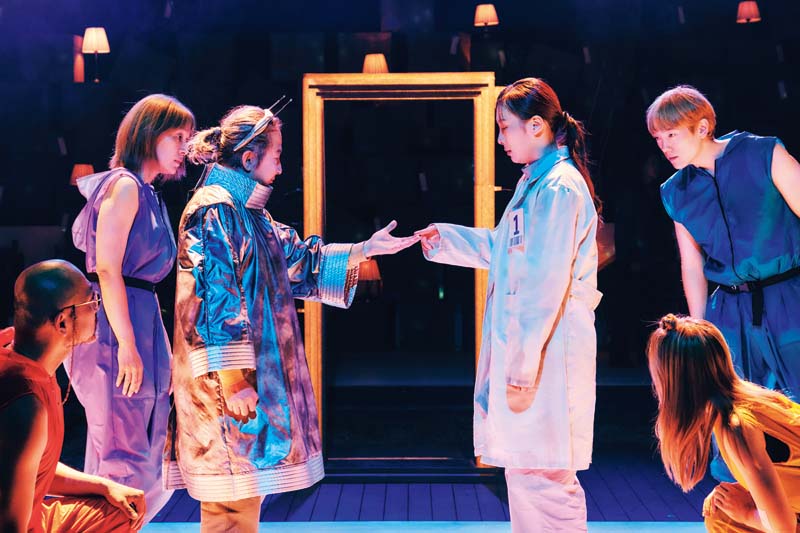
Conservation Scientist, written by Mi-hee Yoon and staged at the former BAIK CHANG THEATER in 2023, interweaves a range of characters in an allegorical yet universal narrative. Exploring themes of disappearance and eternity, conservation and restoration, the play is abstract in form but grounded in reality. It was praised for the depth of interpretation that Insoo Lee brought to the work. Courtesy of the National Theater Company of Korea
DIRECTING FROM THE HEART
In 2019, Lee staged Therapies (Terapijos), by the Lithuanian playwright Birutė Kabašinskaitė, which tells the story of seven female patients sharing time together in a cancer ward. One of the actors reflected on working with Lee at the time: “In more than twenty years as an actor, I’ve never met a director who was so kind. It was the first time I realized a director could be kind.” In the Korean theater world, still largely dominated by male directors in their fifties and sixties, it’s not easy for a woman to take command of the stage and win over actors with kindness. Not just in this sense, Lee is exceptional.
Lee believes that directing exists to serve the text and that a director’s role is to realize the writer’s intent and vision with integrity. In a theater culture where many playwrights hand their work to the director and then deliberately stay away from rehearsals, as if it was no longer their play, Lee’s approach shows admirable integrity.
In fact, Lee is no stranger to playwriting, and her distinguished academic journey reflects her dedication. After earning a degree in English literature from Seoul National University, she majored in playwriting at the Korea National University of Arts before heading to the U.S., where she earned her master’s from Miami University and a doctorate from the University of Pittsburgh. Alongside her extensive career as a researcher, she has maintained her passion for playwriting and penned several works, one of which was staged by another director upon her return to Korea.
“It was really tough. The director showed no respect for my work, acting as if they had the right to interpret it entirely on their own, regardless of the writer’s intent,” she recalls.
While that experience wasn’t the only reason, Lee shifted her focus to directing. Many opportunities came her way, and each time, her first priority was respect for the writer. Perhaps it’s no coincidence that in the name Geulmoo — meaning “writing and the stage” — writing comes before the stage. The spirit of mutual respect has helped the group create a body of work more diverse and vibrant than any other ensemble of its kind.
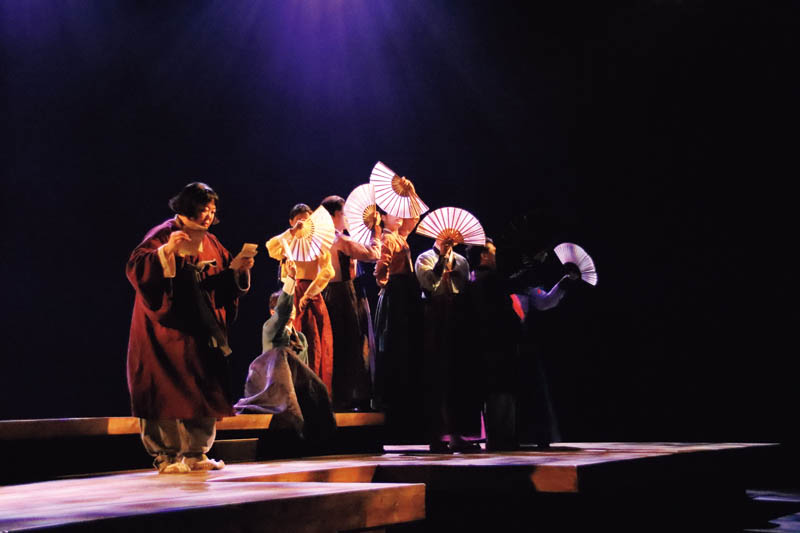
A Funeral for a Righteous Woman, written by Jin Ju of the Geulmoo group, premiered at the Daehakro Arts Theater in 2023 to wide acclaim from both audiences and critics. Set in the women’s quarters of a Korean noble household in the late 18th century, the play sheds light on women’s lives during that era and the legacies they left behind. Courtesy of Geulmoo
IN SYNC WITH THE AUDIENCE
On the subject of connecting with audiences, Lee speaks passionately about dialogue: “Research shows that when you give a talk without PowerPoint slides, people pay closer attention. I think theater works in a similar way. Even without an actual set or physical props, a play can ignite the audience’s imagination to conjure places and objects. That’s when the audience and the actors fall into sync. To me, that’s one of the most captivating aspects of theater.”
During the recent run of A Joke about Burnout at Doosan Art Center’s Space 111, Lee witnessed some memorable moments. In one performance, someone in the audience shouted “You bastard!” at the actor playing the ruthless CEO, showing just how deeply the audience was engaged. On another occasion, a spectator leaving the theater after the show warned their companion, “Don’t overwork yourself. You’ll die if you do.” It’s moments like these that Lee finds most rewarding.
“I was truly happy to hear that my cousin’s daughter, who’d been in a job so grueling that it seemed she might die from overwork, quit after seeing this play and is now happily employed in a new job,” she says.
REINTERPRETING THE CLASSICS
Looking ahead, Lee hopes to bring more classic works to the stage. This past May, she directed Shakespeare’s Twelfth Night for the repertory season of the Korea National University of the Arts. She has also introduced major international works to Korean audiences through her translations, including Philip Ridley’s Vincent River, Alan Bennett’s The History Boys, and David Greig’s Yellow Moon: The Ballad of Leila and Lee.
Her love for literature shone through in the production of Sarah Ruhl’s Dear Elizabeth. Based on the lifelong correspondence between American poets Elizabeth Bishop and Robert Lowell, the performance featured four actors seated together, reading the letters without any significant movement. In a world addicted to short-form video, staging such a contemplative work in analog form was not an easy approach. Yet Lee had faith in the audience, and not a single person left during the two-hour show.
“Even after many years, through different loves and the twists and turns of their lives, they remained for each other the one who stood far away holding a lantern, waiting. I wanted to capture the texture — the very fabric — of that kind of friendship.”
Lee’s words seem to perfectly capture her artistic vision to faithfully render the texture of a writer’s work and context, so that audiences can connect with the work and, in doing so, light a single lantern to offer comfort. It remains to be seen which corner of the theater world Lee will illuminate next.
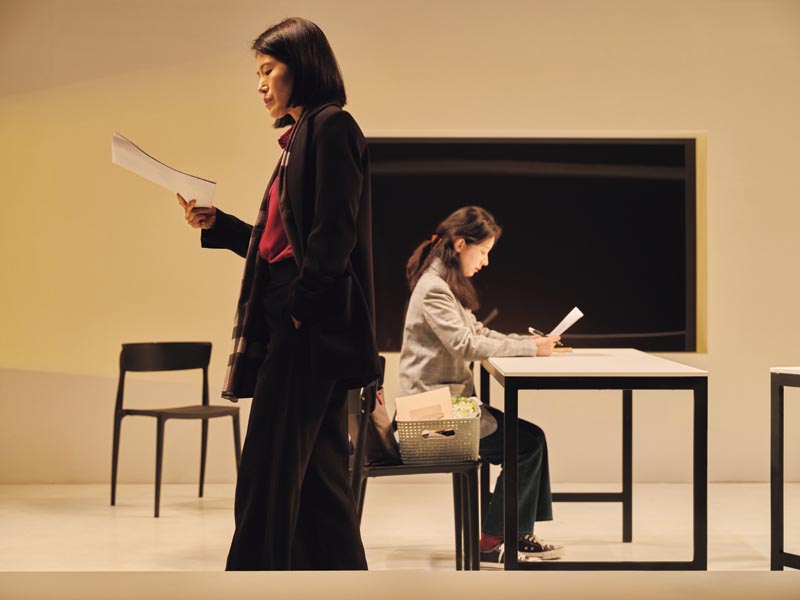
Class, written by Jin Ju, was first showcased at Doosan Art Lab in 2021 before its formal staging at Doosan Art Center’s Space 111 the following year. It tells the story of a university playwriting class, where a professor and student engage in one-on-one lessons. While the initial staging emphasized intergenerational companionship and solidarity, director Insoo Lee’s 2022 production shifted the focus to the characters’ confrontation with and recovery from personal trauma. Courtesy of Doosan Art Center